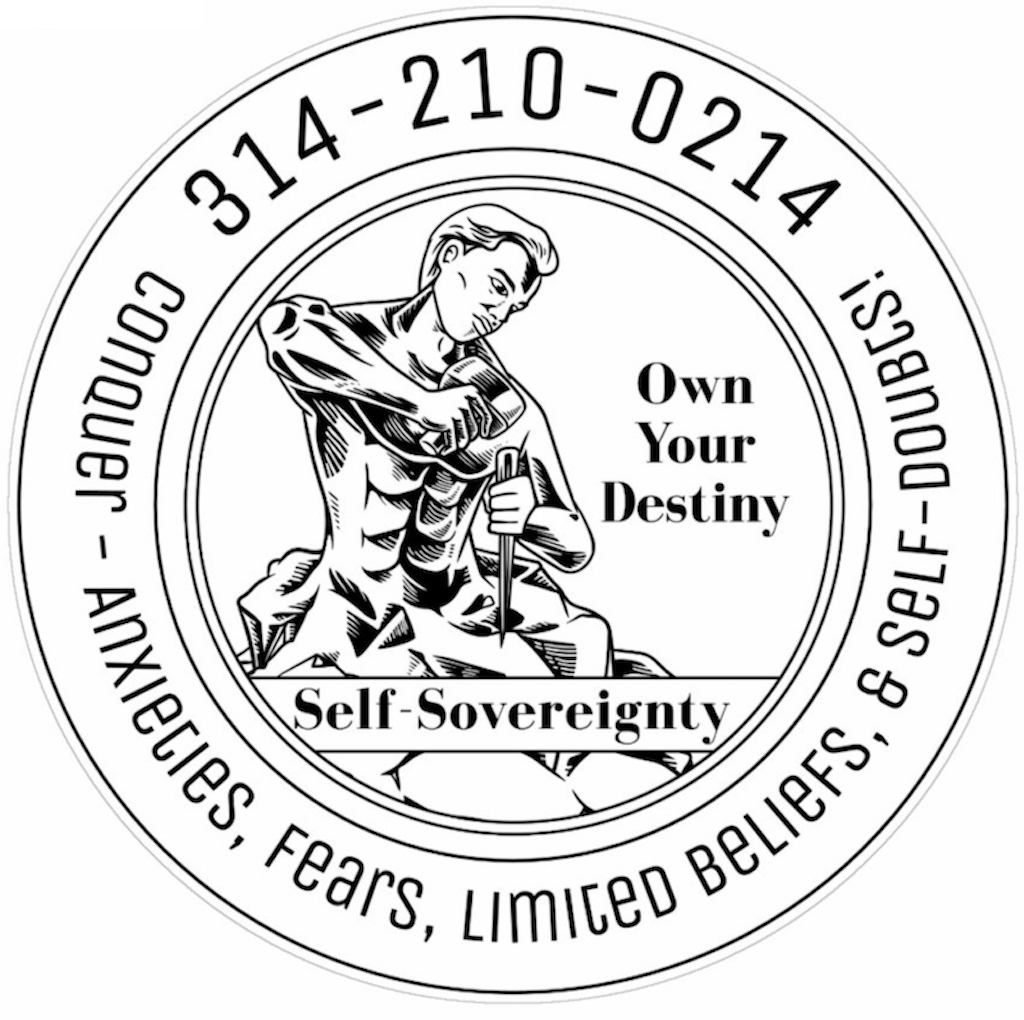
What is Contentment? Simply put, contentment is a state of happiness and satisfaction.
It’s the feeling of fulfillment, peace, and happiness that arises when you are at ease with your current circumstances, regardless of whether they meet your desires or expectations.
Hello, and welcome to Self-Sovereignty, where we explore personal accountability, individual growth, and wellbeing.
And in this post we’re going to explore contentment.
And I’ll begin by asking, Are you Content?
Do you know what it means to be content, or how it feels to be content? Do you know or understand the signs of not being content or simply lacking contentment?
Perhaps more importantly, do you know what you can do to gain contentment in your life?
My name is Steve, and I’m a Psych-k facilitator and host of the Self-Sovereignty YouTube channel.
As a trained PYSCH-K® facilitator, I assist individuals onsite and virtually across all locations to overcome personal anxieties, fears limiting beliefs, and self-doubts to better align with their current aspirations, desires and goals.
And while we may spend some time discussing their background situations or personal life stories, we primarily focus on the future.
Together, we work on transforming the underlying subconscious mindset that is causing these unsettling emotions and feelings associated with a specific condition or situation.

We focus on the future state, the goals, as in “What do you want instead.” Meaning, how do you want to act and feel when this situation comes into your life again?
To say it another way, we reprogram the subconscious mind with new affirmative beliefs for that unique situation.
Now getting back our topic for this post, Contentment can be defined as a state of being mentally or emotionally satisfied with things as they are.
Contentment often involves a sense of gratitude for what you have and acceptance of what you cannot change.
It doesn’t mean complacency or lack of ambition, but rather finding joy and satisfaction in the present moment while still working towards your goals and aspirations.
Contentment reminds me of the Serenity Prayer,
“God, grant me the Serenity to accept the things I cannot change,
The courage to change the things I can,
And the wisdom to know the difference.”
Contentment is important for several reasons:
First, contentment contributes to overall emotional well-being by reducing stress, anxiety, and feelings of dissatisfaction. It allows you to experience inner peace and tranquility.
And when you’re content, you’re more likely to have healthier relationships. Content people are generally more patient, empathetic, and understanding, leading to stronger connections with others.
Contentment is linked to better mental health outcomes, including lower rates of depression and higher levels of life satisfaction.
Contentment also provides a buffer against life’s challenges. It helps you navigate difficulties with greater resilience and optimism, bouncing back from setbacks more effectively.
Contentment fosters gratitude and appreciation for what you have in life, rather than constantly striving for more. This mindset shift can lead to greater happiness and fulfillment.
Also, research suggests that contentment is associated with better physical health outcomes, such as lower blood pressure, improved immune function, and even increased longevity.
And finally, contentment leads to Sustainable Happiness: While external circumstances and achievements can bring temporary happiness, contentment offers a more sustainable form of happiness that isn’t dependent on external factors. It comes from within and can be cultivated regardless of external circumstances.
Overall, contentment is vital for leading a fulfilling and balanced life, promoting well-being across various aspects of one’s life.
Signs of contentment may vary from person to person, but some common indicators include:
A more peaceful demeanor, expression of gratitude, acceptance and living in the presence. And a sense of fulfillment and general satisfaction with their life.
Content individuals typically have healthy boundaries and are comfortable saying no when necessary. They prioritize their well-being without feeling guilty.
Content individuals have a deeper sense of purpose or direction in life that gives them meaning and fulfillment beyond material possessions or external achievements.
They’re more willing to share their time, resources, and energy without expecting anything in return.
While these signs can indicate contentment, it’s essential to remember that nobody is content all the time, and it’s natural to experience fluctuations in mood and outlook.
And that’s ok, after all we’re all human, we all make mistakes, experience setbacks, etc. That’s just a fact of life.
The important thing here is to, acknowledge the situation or experience for what it is, focus on the positive or lessons learned, and move on. Don’t let the past rob you of the future.
To that end, let’s take a quick look at some signs for how lacking contentment can manifest in various ways, starting with Constant Restlessness.
Meaning, individuals who lack contentment may exhibit a persistent sense of restlessness or dissatisfaction. They may feel like something is missing in their lives, regardless of their achievements or circumstances.
Additionally, they may engage in frequent comparison with others, leading to feelings of inadequacy or jealousy. They may constantly measure their success, possessions, or appearance against those of others.
Other signs of lacking content can include persistent unhappiness as well as inability to enjoy the present moment, excessive materialism, chronic stress or anxiety, and engaging in escapist behaviors such as excessive drinking, substance abuse, or compulsive shopping can be signs of trying to numb feelings of discontentment or dissatisfaction.
Recognizing these signs can be the first step toward cultivating a greater sense of contentment and fulfillment in life.
So now that we know the signs of lacking contentment, what are some general activities and steps that can be taken to gain contentment?
First off, it’s important to understand that Gaining Contentment is a gradual process that involves cultivating certain attitudes, habits, and perspectives. Here are some steps you can take to foster a greater sense of contentment:
- Practice Gratitude: Regularly take time to reflect on the things you’re grateful for in your life. Keeping a gratitude journal or simply making mental notes of the blessings in your life can help shift your focus towards appreciation.
- Mindfulness and Meditation: Engage in mindfulness practices or meditation to cultivate awareness of the present moment and reduce stress and anxiety. Being mindful allows you to fully experience and appreciate the richness of life as it unfolds.
- Set Realistic Expectations: Avoid setting unrealistic expectations for yourself or others. Accept that life has its ups and downs, and not everything will go according to plan. Adjust your expectations to align with reality, and be kind to yourself when things don’t turn out as expected.
- Focus on What You Can Control: Direct your energy towards things you can control, such as your attitudes, behaviors, and responses to situations. Let go of trying to control external factors or other people’s actions, as this often leads to frustration and disappointment.
- Practice Self-Compassion: Treat yourself with kindness and understanding, especially during times of difficulty or failure. Acknowledge your imperfections and mistakes without harsh self-judgment, and offer yourself the same compassion you would give to a friend.
- Cultivate Positive Relationships: Surround yourself with supportive and positive people who uplift and inspire you. Invest in nurturing meaningful connections with friends, family, or community members who share your values and bring joy to your life.
- Savoir Life’s Simple Pleasures: Take time to savor and enjoy life’s simple pleasures, such as spending time in nature, enjoying a favorite hobby, or sharing a meal with loved ones. Cultivate a sense of wonder and appreciation for the beauty and richness of everyday experiences.
- Practice Generosity and Kindness: Engage in acts of kindness and generosity towards others, whether through volunteering, offering support to a friend in need, or simply extending a kind word or gesture. Giving back can foster a sense of connection and fulfillment.
- Set Meaningful Goals: Set goals and pursue activities that align with your values and passions. Focus on meaningful pursuits that bring a sense of purpose and fulfillment, rather than chasing external markers of success or approval.
- Seek Professional Help if Needed: If you find that feelings of discontentment persist despite your efforts, consider seeking support from a therapist or counselor. A mental health professional can help you explore underlying issues and develop coping strategies to cultivate greater contentment and well-being.
Remember, gaining contentment is a journey, and it’s okay to have setbacks along the way. Be patient with yourself and celebrate small victories as you progress towards a more content and fulfilling life.
I hope you found the information in this post helpful, and I encourage individuals seeking additional information about PSYCH-K to check out my previous episodes here on YouTube, or reach out to me directly.
And before we go, I want to hear from you. What information or questions do you have about Contentment? Share your thoughts in the comments below.
And remember, The Answer is Within You, to Build A Better You, and to Own Your Destiny.
Thanks for watch, take care and GOD Bless!
